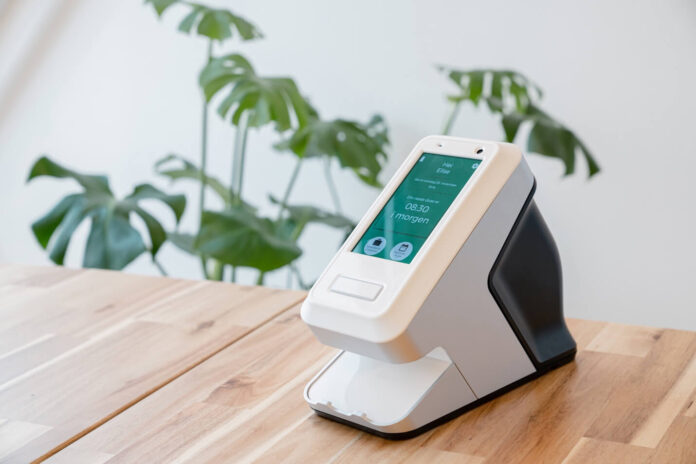Pharmacies are constantly evolving, and new technologies are playing an important role in improving pharmacy operations. With the rise of digitalization and changing consumer habits, pharmacies have had to adapt to new expectations and trends.
The use of pharmacy software, home delivery of medicines, and inventory management software are just a few examples of how digital solutions are being used in the pharmacy sector. Another trend that is gaining momentum is data intelligence, which allows pharmacists to better monitor and advise patients using algorithms and patient health data. Telemedicine, artificial intelligence, connected mirrors, and connected pill dispensers are also technologies that are improving the pharmacy industry.
As the pharmaceutical industry continues its path towards digital transformation, it is clear that these innovations will play a crucial role in shaping the future of pharmacies.
Digitization of Pharmacies

In the era of the connected world, pharmacies are also relying on innovative digital solutions to meet the new expectations of patients. Indeed, it is imperative that the pharmacy sector adapts to the new consumption patterns of millennials, where ordering and delivery via smartphone have become the norm.
This evolution in consumer habits has given rise to the concept of home delivery of medicines. The presence of pharmacies on the web has become almost indispensable. The utilization of pharmacy software and technology improves visibility, but also avoids losing patients who cannot find a physical store. In the dynamics of this digital transformation, pharmacies are almost always equipped with inventory management software and other IT tools to facilitate their operations.
Data Intelligence
When artificial intelligence and machine learning algorithms are used to analyse enormous volumes of data in order to find patterns, trends, and insights that might guide decision-making, the process is known as “data intelligence.” In the context of pharmacy operations, data intelligence can be used to help pharmacists make more informed decisions about patient care and treatment.
By enabling more individualized and focused therapies, one of the main advantages of data intelligence in pharmacy is that it may assist to enhance patient outcomes. Pharmacists can better understand each patient’s specific requirements by examining patient data, such as their medical history, present health state, and prescription usage. They can then modify their treatment plans as necessary. This can enhance medication adherence and lower the possibility of negative drug responses.
Additionally, data intelligence can assist pharmacists in better inventory management and ensuring that the appropriate medications are on hand when they are required. Pharmacies may streamline their inventory management procedures and cut down on waste by evaluating data on patient demand and drug consumption.
The subject of fraud detection and prevention in pharmacy is a significant use of data intelligence. Pharmacies can spot suspicious activity and take measures to stop fraudulent transactions by examining data on prescription medicine use and billing trends.
Overall, data intelligence has the potential to revolutionize the pharmacy industry by allowing chemists to provide their patients with more individualized, focused, and efficient care. To preserve patient privacy and uphold faith in the healthcare system, it is crucial to guarantee that patient data is handled securely and in accordance with applicable privacy laws.
Telemedicine

Telemedicine is another trend that is gaining momentum in the pharmaceutical and healthcare industries. Currently, the installation and use of dedicated booths and tablets in collaboration with French doctors is in full swing.
Driven by health crises and restrictions, this new practice has many advantages and should be further democratized in order to remain active.
Artificial Intelligence
The pharmaceutical industry is one of many industries on the path to digital transformation. Digital displays are expected to replace pharmacy shelves in the coming years. This development is made possible by artificial intelligence and promises many improvements.
According to this principle, patients only need to provide as much information as possible about their health condition, and the artificial intelligence behind the screen will find the medicine they need.
Connected Mirror
Connected mirrors are a ubiquitous technology, not only in bathrooms, but also in pharmacies. Manufacturers have already developed mirrors that can measure a patient’s temperature.
In the future, this tool could evolve into a mini pharmacy lab. Next-generation smart mirrors with built-in 3D sensors and infrared cameras should be able to quickly detect a cold simply by detecting a runny nose or inflamed glands.
The most sophisticated mirrors can even contact online pharmacies to deliver medication to patients’ homes.
Connected Pill Dispenser

Connected pill dispensers are a highly innovative and useful tool in the healthcare industry. These devices are designed to help patients who have difficulty remembering to take their medication or who may be at risk of overdosing.
Connected pill dispensers can save the lives of the elderly. Complex drug regimens can be more challenging to follow as we get older, and missing taking your medication can have major health repercussions. By sending notifications and reminders when it’s time to take medication, a linked pill dispenser can aid in streamlining medication administration. These tools can also track medicine use and supply information to carers and healthcare professionals, enabling them to check on medication adherence and make any modifications.
In addition to providing medication reminders and tracking usage, some connected pill dispensers also incorporate additional features to improve patient outcomes. For example, some devices may provide education and information about medication and potential side effects, while others may include sensors to monitor patient behavior and alert caregivers or healthcare providers if there are signs of trouble.
In conclusion, the pharmacy industry is undergoing a significant digital transformation. The rise of digitalization and changing consumer habits have led to the adoption of digital solutions such as pharmacy software, home delivery of medicines, and inventory management software. The use of technology has already made a significant impact in streamlining operations, improving inventory management, and enhancing patient outcomes. However, it is important to ensure that patient data is handled securely and in accordance with applicable privacy laws.
As the pharmacy industry continues to evolve and innovate, it is essential for pharmacies to keep up with the latest technological advancements. By doing so, they can provide better care for their patients and improve their overall operations. Ultimately, the integration of technology in the pharmacy industry has the potential to enhance the quality of care for patients while also improving the efficiency and effectiveness of pharmacy operations.





